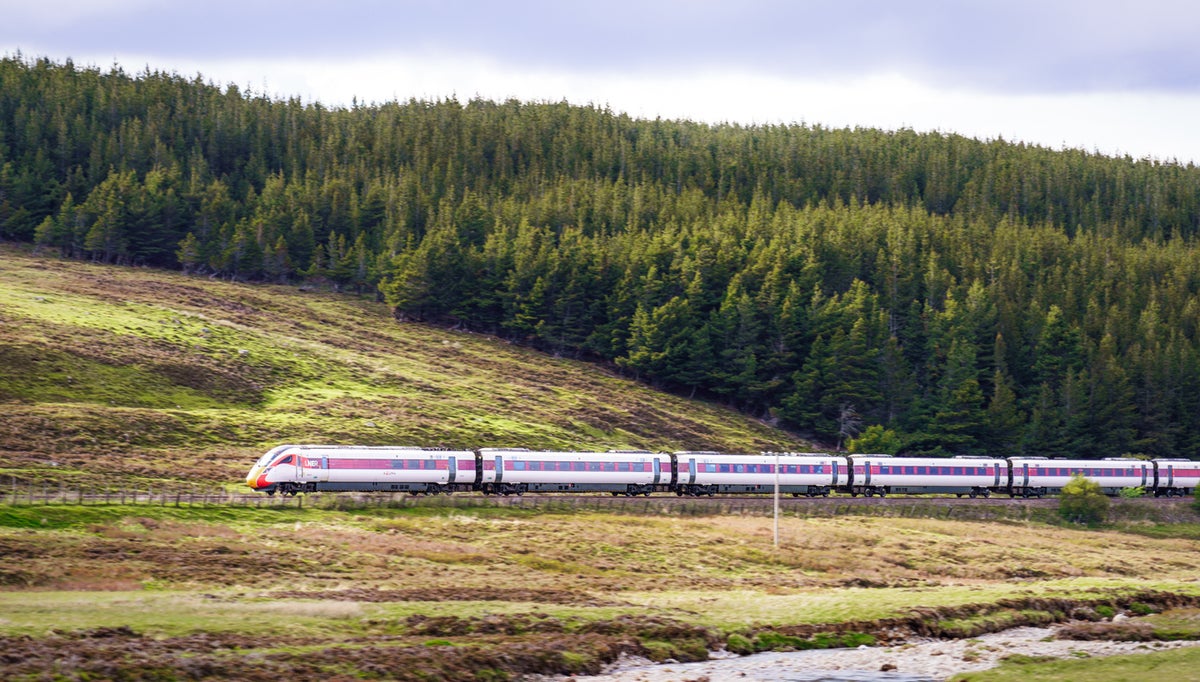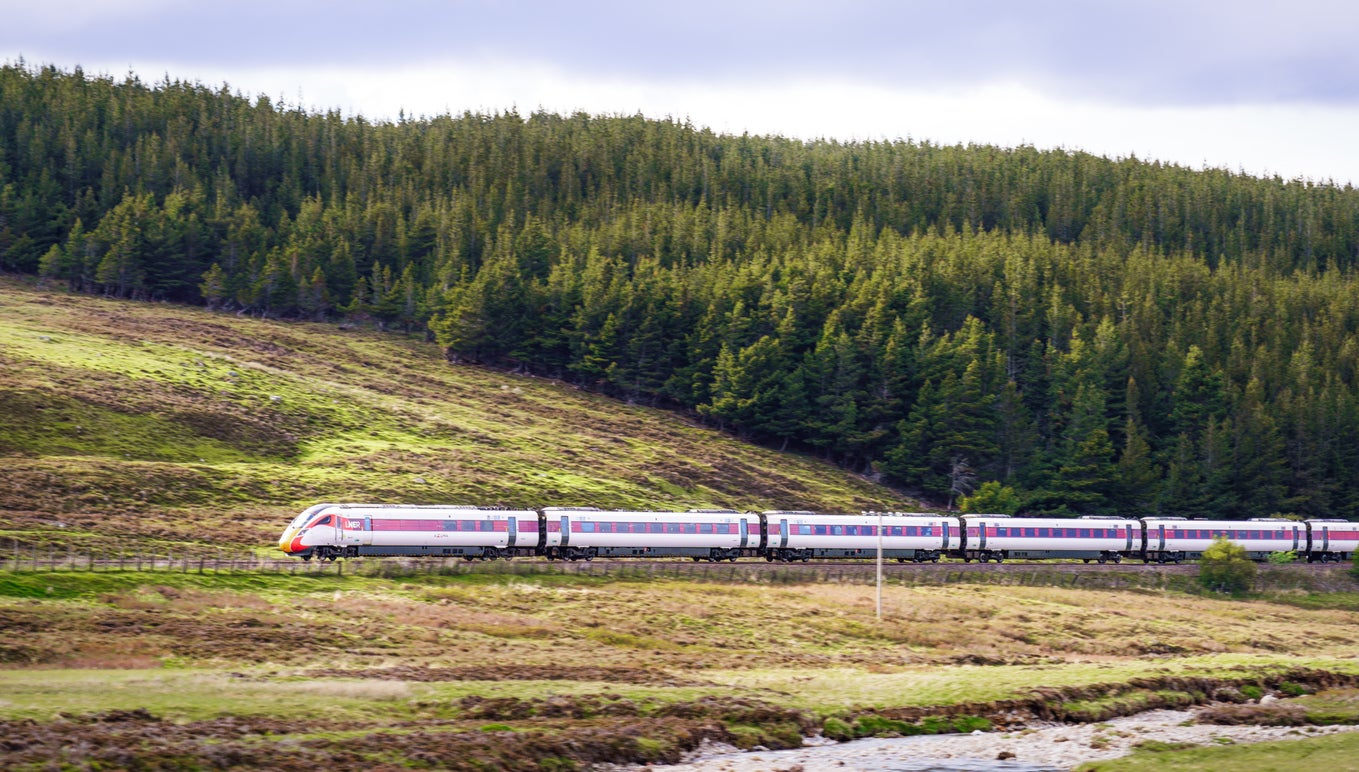
Brits could save a total of 186,200 tonnes of CO2 by taking one train journey instead of driving this autumn, a new study claims.
Rail operator LNER, which covers the northeast and Scotland among other areas, conducted the research with UCL’s Institute for Sustainable Resources in order to find how much carbon could be saved by taking the train rather than a car.
Basing its figure on the prediction that 6.1 million Britons plan to travel by car for a leisure trip this autumn, it says that “186,200 tonnes of carbon dioxide (tCO2e of carbon emissions could be saved if each took just one journey by train rather than car”.
They describe the emissions saved as “comparable to the filling the volume of the Elizabeth Tower (which houses Big Ben) over 22,000 times, or Wembley Stadium 25 times”.
The research also polled British holidaymakers, finding that Britons would prefer to make small swaps towards a more sustainable lifestyle, rather than large, drastic life changes.
More than a third (36 per cent) of respondents said they don’t have enough knowledge about the smaller alterations they could make to ease the effects of climate change.
Meanwhile, 70 per cent of adults said they are at least “somewhat concerned” about the environmental impact of travel, while more than a third (34 per cent) would like to reduce their carbon footprint.
Professor Paul Ekins, a professor of resources and environmental policy at the UCL Institute for Sustainable Resources, said: “Often we talk about climate change in large scales such as icebergs melting and sea level rise, and this can make the issue feel overwhelming and unmanageable, and discourage people from making changes in their lives that can help.
“What our research has concluded is that small changes made by enough people really do make a difference.
“Just one journey switched from car or bus to train by everyone who takes a leisure trip in a year could reduce carbon emissions by over 1 million tonnes CO2, or 16.6 per cent of emissions from leisure trips.
“This is a really big contribution from just one small change in a year to people’s daily lives.”

The UK policy manager of Transport & Environment, Matt Finch, said that as parts of the UK rail network is electrified, including the East Coast Main Line is, LNER’s diesel-electric trains would be the greener option by far.
However, he added that ministers needed to make rail fares more affordable in order to encourage the average domestic traveller to use the train network.
“This research proves that taking the train is greener, and that Brits want to be green,” said Mr Finch.
“But it’s far too expensive for many to travel by rail. The government has a golden opportunity - via the new public body Great British Railways - to get rail fares right and ensure that travelling by train becomes the natural choice for many leisure journeys.”







